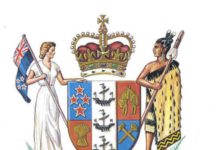Scientists warn deep sea mining could be a “significant risk to ocean ecosystems” with “long lasting and irreversible” impacts, including risks to globally endangered species, like blue whales.
University of Exeter and Greenpeace Research Laboratories published a new peer-reviewed paper that focuses on the overlap between cetaceans (such as whales, dolphins and porpoises) and target sites for deep sea mining, especially in the Pacific Ocean.
The study says urgent research is needed to assess threats to these mammals, particularly noise pollution from proposed mining operations.
Deep sea mining companies haven’t yet received permission to start mining on an industrial scale, but they are pressuring governments to get the green light to start mining commercially for the first time in July 2023.
If permission is granted, giant machines weighing more than a blue whale are expected to work 24-hours a day, producing sounds at varying depths that could overlap with the frequencies cetaceans use to communicate.
Greenpeace Aotearoa seabed mining campaigner James Hita says the impact of deep sea mining on the ocean, including cetaceans like whales and dolphins, will be catastrophic.
“Deep sea mining poses too many risks that could leave permanent damage to ecosystems and people who depend on the ocean to survive. This destructive industry operates at the expense of many species like blue whales. We risk losing so much if the UN International Seabed Authority gives the green light for this destructive industry to start.
“Governments cannot uphold their commitments to protect the oceans if they allow deep sea mining to go ahead.
Opposition in the Pacific is turning the tide of deep sea mining and countries including New Zealand, Germany, Chile, France, Spain, Fiji, Canada and Chile are calling for a moratorium on deep sea mining. In Aotearoa, more than 38,000 people called on the New Zealand government to ban seabed mining in Aotearoa New Zealand.
“We need to stop deep sea mining before it begins,” says Hita.
The University of Exeter’s Dr Kirsten Thompson says “Imagine if your neighbourhood was suddenly disrupted by construction work that goes on 24/7, your life would change dramatically. Your health would be compromised, you might change your behaviour to escape from it. It’s no different for whales or dolphins.”
The Clarion-Clipperton Zone (CCZ) between Mexico and Hawai’i in the Pacific Ocean provides habitat for at least 25 cetacean species, including dolphins and sperm whales, but is of extra interest to mining companies aiming to extract metals and minerals from seafloor habitats.
So far 17 exploratory deep sea mining contracts have been granted in this part of the Pacific Ocean. In addition, mining companies are also looking to target seabed mineral resources in areas around other important ecosystems like seamounts and deep sea hydrothermal vents.
The International Seabed Authority, the intergovernmental body charged with regulating deep sea mining in international waters, will meet in March and July in Kingston, Jamaica.
At the last round of negotiations in November 2022, governments including New Zealand, France and Chile opposed commercial pressure to allow deep sea mining to start in 2023 and instead called for a precautionary moratorium.
Photos available HERE
https://www.frontiersin.org/articles/10.3389/fmars.2023.1095930/full



